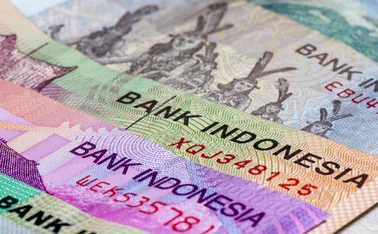
On the right track


In a period of unprecedented change, China continues to develop. Its development paradigm, ‘dual circulation’ – prioritising the domestic market while the domestic and foreign markets boost each other – formulated by the Central Committee of the Communist Party of China (CCCPC), has made new demands for the development of China’s financial sector, including the capital market.
A road of 1,000 miles begins with one step – development must be built on a well-functioning fundamental structure. Since the 19th National Congress of the CPC in 2017, the CCCPC and the State Council of the People’s Republic of China have stepped up efforts to develop China’s capital market, and have implemented a series of measures to accelerate financial reform, improve the market system and build a multilevel capital market.

According to the 14th Five Year Plan (2021–25) for National Economic and Social Development and the Long-Range Objectives Through the Year 2035 announced at the Fifth Plenary Session of the 19th CCCPC in October 2020, greater efforts are needed to enhance institutional construction of the capital market, including the promotion of the registration-based initial public offering (IPO) system, the establishment of a regular delisting system and an increase in the proportion of direct financing. This requires all financial sector actors to work on the following three aspects:
1. Ensure strict approval procedures are in place so only high-quality companies can go public. Despite the Covid‑19 pandemic, China’s A-share market grew significantly in issuance and fund raising, and its total market value is second worldwide thanks to the new IPO system. However, rapid expansion of the market could lead to problems such as poor governance, lack of internal management and major shareholders’ guarantees in violation of laws and regulations. An information disclosure system oriented toward investors’ needs lies at the core of the registration-based IPO system. Therefore, to further improve laws and regulation, and to reinforce punishment for issuance-related fraud, illegal information disclosure and other violations will definitely build an essential foundation for the smooth implementation of the IPO system and improvement of the quality of listed companies.
2. Prevent systemic risk. Underneath the stable surface of China’s capital market, risks remain in stock pledge of some listed companies, the insolvency of which may lead to default. Global shocks caused by the pandemic have led to risks from sharp asset fluctuations, which should be dealt with correctly. While it enhances market inclusiveness and accessibility to financing, China’s capital market must improve the mechanism for risk monitoring, alert, prevention, control and emergency handling to form a prevention and control system for risk management.
3. Relieve troubles for companies. Regulatory bodies should set a standard on delisting, streamline the procedure and establish a regular mechanism. Only when good companies compete in the market can the capital market develop healthily. When a listed company is in trouble, regulatory bodies should help by leveraging advantages of the market through the efficient allocation of resources. The regulatory bodies should mitigate existing risks by measures such as debt restructuring, asset restructuring and debt-to-equity swaps, and improve related regulation to help delisted companies improve the profitability of their assets through bankruptcy and restructuring, or relisting, thus protecting investors’ interests.
More work should be done to promote the high-quality opening-up of the financial sector. In October 2020, on the 40th anniversary of the establishment of Shenzhen Special Economic Zone, President Xi Jinping highlighted that the new development paradigm is not a development loop to be used behind closed doors, but more open to domestic and international circulations. The financial sector should work on the following three aspects:
1. Keep expectations stable and gradually expand opening-up. In the past few years, China’s financial sector has gained more global influence, and its experiences have been promoted overseas. To promote opening-up at higher level, the financial sector should continue to expand market access and business scope, create an open and inclusive environment that encourages competition, and continue to create and innovate. In this way, the financial sector will better serve the real economy, and contribute to the formulation of domestic and international circulation.
2. Promote two-way opening-up. China will continue to provide various financial services and attract more overseas companies to participate in the development of its economy. Meanwhile, the financial sector has to enhance the quality of its cross-border financial services. China will encourage domestic financial institutions to go global to serve overseas Chinese companies through the construction of the Belt and Road Initiative.
3. Safeguard financial security. During opening-up, the inflow of foreign capital could lead to intense fluctuations in prices of financial assets. The financial sector must enhance international financial governance, improve supervisory and risk management systems, and prevent intertwined risks caused by cross-border arbitrage and capital flows. The dual circulation paradigm and high-level opening-up will be a sound foundation for the new global economic landscape.
Galaxy quest
China Galaxy Financial Holdings, as an active stakeholder in the financial sector, will play its role serving the development of the real economy. Founded 15 years ago, the company is approved by the State Council and jointly funded by the Ministry of Finance and Central Huijin Investment. Since its inception, the company has been actively exploring comprehensive business models of China’s financial sector. Currently, China Galaxy Financial Holdings has aggregate assets in excess of CNY400 billion, and net assets of CNY100 billion, with nearly 10,000 employees. The business provides services in China and worldwide, mainly through its financial platforms, such as China Galaxy Securities, China Galaxy Asset Management, Galaxy AMC and China Galaxy Investment Management.
As a responsible central enterprise in the financial sector, China Galaxy Financial Holdings will carry out businesses and operations in accordance with the administration. The company is committed to following national-level requirements to promote supply-side structural reform and ensure stability in six key areas: employment, the financial sector, foreign trade, foreign investments, domestic investments, and expectations. It will also effectively meet the six priorities of job security, basic living needs, operation of market entities, food and energy security, stable industry and supply chains, and normal functioning of primary-level governments.
Leveraging its advantage in multiple financial licences, China Galaxy Financial Holdings will continue to provide financial services in fund-raising, investment, management and withdrawal, and to strengthen professional capability and competitiveness in the market. It also assists enterprises in industrial integration and deleveraging, and helps those encountering difficulties, including those encumbered by the pandemic, to resume business.
The company also supports the development of the capital market. While providing high-quality investment bank services, China Galaxy Financial Holdings focuses on fixing weak links and promotes high-quality development of the capital market through equity investment, listed company relief, default bond treatment, and bankruptcy and restructuring. It also helps to defuse financial risks. The company takes advantage of countercyclical adjustment to gradually release corporate and financial risks. By acquiring toxic assets, it actively helps financial institutions and enterprises to defuse their risks, fully implementing the CCCPC’s strategic requirement of preventing and defusing financial risks.
Only users who have a paid subscription or are part of a corporate subscription are able to print or copy content.
To access these options, along with all other subscription benefits, please contact info@centralbanking.com or view our subscription options here: http://subscriptions.centralbanking.com/subscribe
You are currently unable to print this content. Please contact info@centralbanking.com to find out more.
You are currently unable to copy this content. Please contact info@centralbanking.com to find out more.
Copyright Infopro Digital Limited. All rights reserved.
As outlined in our terms and conditions, https://www.infopro-digital.com/terms-and-conditions/subscriptions/ (point 2.4), printing is limited to a single copy.
If you would like to purchase additional rights please email info@centralbanking.com
Copyright Infopro Digital Limited. All rights reserved.
You may share this content using our article tools. As outlined in our terms and conditions, https://www.infopro-digital.com/terms-and-conditions/subscriptions/ (clause 2.4), an Authorised User may only make one copy of the materials for their own personal use. You must also comply with the restrictions in clause 2.5.
If you would like to purchase additional rights please email info@centralbanking.com







